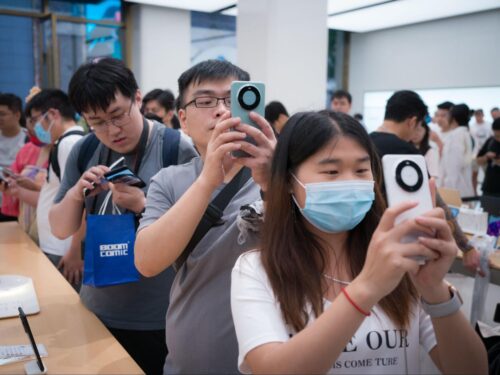It’s political: U.S. puts heat on China with Huawei indictment, extradition request

The U.S. Department of Justice on Monday unleashed a barrage of indictments (for theft of trade secrets and bank fraud, among other things) against Chinese 5G champion Huawei, the latest part of an escalating campaign against the Chinese national champion and global mobile equipment supply leader.
The meaty announcement included an array of U.S. government departments: Justice, Commerce, and Homeland Security, but not the more dovish Treasury, all moving in lockstep to paint Huawei as a particularly nefarious purveyor of a distinct corporate culture, a scofflaw, perjurer, and predator, running amok internationally and not to be trusted with building something as sensitive as a platform for a country’s next-generation Internet of Everything. This was the clear subtext of the rhetorical tsunami, which became most explicit in the words of FBI Director Christopher Wray, who also touted the firm’s closeness to Beijing as yet another reason to distrust Huawei handsets and base stations.
Senior U.S. law enforcement officials alleged that Huawei engaged in a range of dishonest business practices, manipulated banks into maintaining relationships with the company, lied to the U.S. government, and obstructed justice by destroying evidence and moving employees back to China.
Considerable effort went into generating the indictments and staging the news conference that targeted both Huawei and its beleaguered CFO, Mèng Wǎnzhōu 孟晚舟, but the 13-charge indictment against Meng recounted mostly already known details, such as Meng’s efforts to establish a front company in Hong Kong to circumvent U.S. sanctions against Iran. Another set of 10 charges against the company went into more detail about the firm’s efforts to steal intellectual property from T-Mobile, though the case is old and the company paid a fine in 2017, with the actual damage to T-Mobile limited.
The most damaging new revelation was that Huawei had encouraged the theft of intellectual property by employees, offering money internally for tech data on competitors or of general use to the firm. It is not clear whether this practice launched in the 2013 timeframe is still in effect or was ended by the company.
One of the primary motives of the charges was to provide a public forum for the U.S. to again make the case to allies considering using Huawei for their 5G networks that they should move to impose legal restraints that bar Huawei and its chief Chinese competitor ZTE from participating in network buildouts. It was also about making a more public case for the extradition of Meng — and, indeed, before the day was up on January 28, Canada confirmed that it had received the formal extradition request from Acting Attorney General Michael Whittaker. Commerce Secretary Wilbur Ross at the news conference was careful to clarify that the U.S. actions were law enforcement measures completely separate from the ongoing trade negotiations — Vice Premier Liú Hè 刘鹤 leads a Chinese delegation to Washington for talks beginning Wednesday, January 30.
But there is the rub. The comments by the assembled U.S. officials left little doubt that Huawei and Meng will face future punishment as a result of the criminal indictments. But how far the U.S. goes against Huawei and how Beijing reacts will impact the trade negotiations, eventually. The U.S. options are many, from massive fines to travel sanctions against Huawei executives to putting both Huawei and ZTE on life support by landing them on the dreaded Commerce Department Entity List, which would bar the firms from procuring much-needed U.S. hardware and software.
When ZTE had to deal with this reality in early 2018, the company was quickly forced to the brink of insolvency. A similar action against Huawei would create global ripples much more massive, given the Chinese giant’s huge installed base of telecommunications gear around the world, particularly in Europe and Africa. It would throw the just-forming global supply chains around 5G into a tizzy, with unknown consequences. The stakes here are huge for China and its leader, Xi Jinping.
At some point in this process, Xi will have to react to U.S. pressure, or look weak. The U.S. accusations about the company now extend beyond the firm itself, to its alleged close ties with or subservience to Beijing, and to Huawei’s global 5G enterprise. And Huawei’s success in 5G is closely tied to Xi’s own future — he has touted the digital economy that will be built on it as the key driver of future economic growth.
Xi is reportedly very upset with the American and Canadian handling of Meng’s case — in addition to tarring Huawei’s reputation, it has drawn attention to the world of China’s elite offshore wealth and real estate holdings and shown Xi and Chinese leaders to be so far impotent in protecting Chinese business executives who travel abroad. Any Huawei executive now thinking of traveling to Europe or North America is reviewing his or her travel plans. The U.S. has upped the heat on Huawei, but the endgame here is still not clear.






